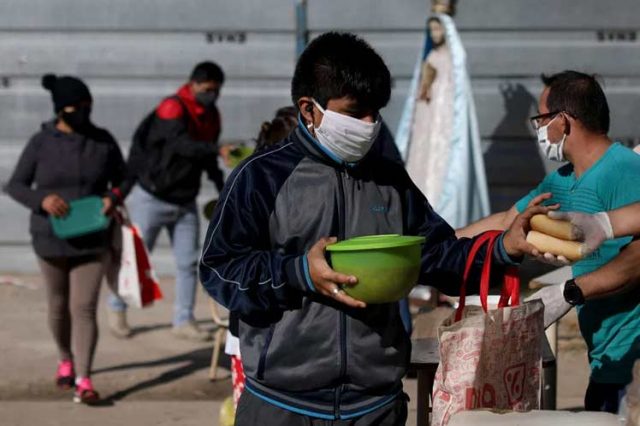The pandemic widened the gap between the rich and the poor in Latin America, as confirmed by the recent 2021 Regional Human Development Report «Trapped: High Inequality and Low Growth in Latin America and the Caribbean» was launched in a virtual presentation by the United Nations Program to Development (UNDP).
The document indicates that the gap between extreme wealth and extreme poverty and vulnerability in Latin America widened as a result of the coronavirus pandemic, which aggravates the situation in the region and prevents progress towards achieving the 2030 Agenda and its Sustainable Development Goals.
According to UNDP, “despite the progress of recent decades, the countries of Latin America and the Caribbean are more unequal than those of other regions with similar levels of development, and their social indicators are still below those expected for their average income level».
As a starting point, the report noted that despite «reductions in inequality» and the decrease in the wage gap between skilled and unskilled work, «the region continues to be the second most unequal region in the world, and the countries of Latin America and the Caribbean have higher levels of inequality than those of other regions with similar levels of economic development.
Fragility in social protection systems
The UNDP report also focuses on the fragility of social protection systems in the region. Furthermore, since last year «the pandemic has reversed much of that progress» and this occurred «despite social assistance measures in some countries».
«It is likely that the proportion of people living in poverty in Latin America and the Caribbean has increased during this time», said the UNDP.
In this context, the document explored three factors that repeat themselves and feed back into the vicious circle of high inequality and low growth: concentration of power, violence in all its forms, and social protection policies that do not work well.
In this regard, it pointed out that “the concentration of power in the hands of a few who defend their private interests is one of the factors that connect high inequality with low growth. Through its political influence, power misused distorts public policies and weakens institutions».
One example explored in the report is the role of economic elites in blocking fiscal reforms that would support a more progressive form of redistribution. To balance the distribution of power, the organization suggests «exploring lines of action such as lobby regulation and the financing of political campaigns».
UNDP warns of inequality and vulnerability
The UNDP highlighted that «the region is the most violent on the planet», and warns that «although inequality causes more violence, violence also increases inequality because it disproportionately affects the most vulnerable populations».
The document points out that «the concentration of power in the hands of a few who defend their private interests is one of the factors that connect high inequality with low growth.» It added that “violence also limits growth through its impact on human capital (and productivity) and on public and private investment that is distorted, as well as by the spending on security and by the uncertainty about property rights».
Linking risk insurance systems to formal employment has motivated governments to create parallel systems, of lower quality, to cover the people who are excluded, «who are the majority in the region».
«The report calls on Latin Americans to understand the connection between all these factors and highlights an entry point that can serve to free themselves from low growth and high inequality: the implementation of universal social protection systems that are redistributive, fiscally sustainable and more favorable to growth”, explained Luis Felipe López Calva, UN Deputy Under-Secretary General and UNDP Regional Director for Latin America and the Caribbean.
It also stated that “the solutions must lead to greater growth with environmental sustainability, and to greater inclusion and social mobility. These are solutions that require balancing power in the area of defining rules and policies, eradicating violence in all its forms and redefining the institutional environment that constitutes the essence of the social contract: opportunities in the labor market, taxation and social protection”.


